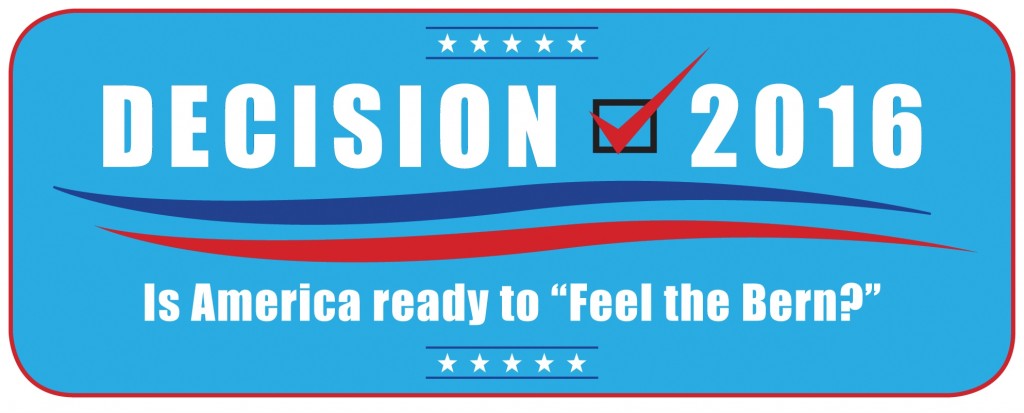By Carolina Silva
Contributing Writer

Senator Bernie Sanders has been ‘Bern-ing’ up the polls, but some voters question whether he can
get the job done. Part two of a three-part series in which The Courier profiles a presidential hopeful.
Socialism is not a word that reflects what most citizens have in mind when talking about the future of the U.S. In this case, socialism is the word that comes to mind when talking about Bernie Sanders, a self-proclaimed democratic socialist and presidential candidate full of progressive ideas, according to npr. org.
Even though Sanders brings great ideas to the table, U.S. citizens are more willing to vote for a Muslim or an atheist candidate than for a socialist, according to a June Gallup poll.
“Exactly how Americans define ‘socialism’ or what exactly they think of when they hear the word is not known,” according to gallup. com. “The research simply measures Americans’ reactions when a survey interviewer reads the word to them.”
Socialism is defined as a way of organizing a society in which major industries are owned and controlled by the government rather than by individual people and companies, according to merriam-webster.com. Regardless of the actual meaning of the word, U.S. citizens still have a negative view of socialism and will be reluctant to move forward down this road.
Being a self-proclaimed democratic socialist is not the only problem Sanders faces. He lacks the connection with minority groups to help secure his nomination and lacks the political experience and pull inside the government he will need once – and if – he is elected president, according to washingtonpost.com and boston.com.
Creating a connection with black voters is among his biggest concerns. “It’s true that Sanders understands the economic ills of America like few others in Congress,” Terrell Jermaine Starr from the washingtonpost.com said. “But he’s done little recently to show that he understands the particular ways those ills affect black Americans. It’s unclear how they should see themselves in an America run by President Bernie Sanders. That is the conundrum he needs to address. Fast.”
A Gallup poll conducted July 8-Aug. 8 among black adults, shows presidential candidate Hillary Clinton in the lead over Sanders, with 80 percent siding with the former first lady. The same issue occurs among Latinos; 68 percent said they didn’t know or had not formed an opinion about Sanders, according to a poll conducted by Noticias Univision.
Now, even though Sanders is gaining momentum among younger and middle class crowds, these groups are not the ones with enough money to support the candidate in his nomination. To make matters worse, the younger crowds are also the ones less likely to go out and vote. Around 20 percent of 18- to 29-year-old citizens cast ballots last fall, according to washingtonpost. com.
Another reason for Sanders’ nomination to fail is his political experience. Only 18 percent of people said he had the right experience to be president, according to nytimes. com. Voters’ lack of confidence in Sanders leads them to believe he lacks the political pull to pass meaningful laws.
On Sanders’ campaign website, berniesanders.com, he proposes 16 important issues he plans to address once he becomes president. Among them are making tuition free at public colleges and universities and making health care a right of citizenship.
But with all the flaws in Sanders’ campaign, the question still lingers: How does Sanders intend to address these issues and make the necessary changes without the support of his peers?
It is true the solutions Sanders proposes might be attractive for most of the U.S. population, as actor Mark Ruffalo said when interviewed by the guardian.com: “People are looking for something different.” The question is: Are U.S. voters ready to take a couple of steps closer toward socialism in order to achieve these goals?






